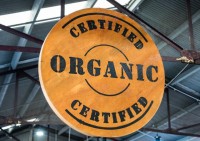NYCO Meeting - Winter 2022
Event Details
Date
February 8, 2022
Time
10 am - 2 pm
Location
Virtual or J Martin Auctions
1036 NY-318
Waterloo , NY 13165
Host
New York Certified OrganicLuke Gianforte
315-877-1328

The NY Certified Organic (NYCO) Discussion Meetings are back for just one meeting this winter and another this spring. The planning committee felt that we could have a safe winter meeting at J Martin Auctions due to the size of the facility which allows for personal spacing. We will also have a zoom link for those that would like to attend virtually.
To attend virtually, you must register for this meeting with this link in advance:
https://cornell.zoom.us/meeting/register/tJEuduCuqzwvEtzr33hRmiG0Vsyrd6ecNPbl
Agenda for Tuesday 2/8/21
10am: Organic Grain Research Mashup: Green Manures, Weeds, and Winterkill - Ellen Mallory, UMaine
11am: Improving Organic No-Till - Jake Allen, Uri Menalled, Chris Pelzer, Annika Rowland, Sandra Wayman, Matt Ryan, Cornell University
12pm: Potluck Lunch, with discussion of Analysis of Slow-Motion Cultivation Footage, with Bryan Brown, Cornell University
1:30pm: Sarah Mitchell of Kings Agriseeds will talk about the organic grain hemp demand coming from the Netherlands. She will talk about some of the early research Kings has done as well as have products which are being produced here in New York made from grain hemp. Rod Porter of Cayuga Ag will talk about new products and mixed mixes from Kings Agriseeds.
3pm: Adjourn
For more information, contact Luke Gianforte at 315-877-1328.
The 2022 NYCO planning committee included: Fay Benson Cornell Cooperative Extension of Cortland County, Bryan Brown, Ph.D, Integrated Weed Management Specialist, New York State IPM, Emily Reiss, Ph.D. Clarence, N.Y., and Luke Gianforte of Gianforte Farm, Cazenovia, N.Y.
Mark your calendars: The spring meeting will be April 12, 2022 on a farm yet to be determined.
Upcoming Events
2026 Cornell Organic Field Crops
March 6, 2026
Waterloo, NY
Connecting farmers, researchers, and service providers to advance resilient & profitable organic farming systems.
Co-hosted by New York Soil Health and Cornell CALS, the annual conference brings together leaders in organic grain, dairy, and livestock systems to share practical tools, new research, and farmer-tested strategies to support resilient and profitable organic production.
March CCE Shop Meeting
March 11, 2026 : Understanding the Benefit and Logistics of Dairy and Crop
Union Springs ,
CCE Cayuga Cayuga, PRODairy, and the SCNY Regional Team, will be hosting their March shop meeting "Understanding the Benefit and Logistics of Dairy and Crop Farmers Sharing Manure." The event is designed to connect dairy and crop farmers interested in exploring manure-sharing arrangements as a practical strategy for reducing input costs and improving nutrient management on both sides of the equation. No registration is required — doors open at 12:30 PM.
Dairy Support Services Company Spring Safety Meeting
March 13, 2026 : Dairy Support Services Company Spring Safety Meeting
Cortland, NY
This meeting is targeted at both experienced and new farm workers and ag service contractors who are operating trucks and ag equipment while applying manure and harvesting crops. There will be CAFO training credits available for farms that need them.
Announcements
Farm Participants Needed for Bale Grazing Grant!
Information on the Project:- Approximately 10 acres total needed to bale graze two different bale densities
- "Core" farms will graze two winters, "Demo" farms will graze one winter.
- Payments for both "Core" farms and "Demo" farms
- Baseline soil sampling by bale grazing team
- Forage measurements in early season by bale grazing team
- Late season clipping if residual not trampled down by farm
Cornell Cow Convos - New Podcast
On-going podcast, New episodes released on the last Thursday of the month.Guest speakers, CCE Dairy Specialists.
Housed on Soundcloud Channel is CCE Dairy Educators
- Preventative healthcare for cows
- The trend of beef on dairy
- What to look forward to in the new year for dairy
- Socially grouping or pair-housing calves
2018 Drug Residue Prevention Manual
For more than 30 years, the U.S. dairy industry has focused educational efforts on the judicious use of antibiotics through the annual publication of a Best Practices Manual. The 2018 edition of the National Dairy FARM Program: Farmers Assuring Responsible Management? Milk and Dairy Beef Drug Residue Prevention Manual is the primary educational tool for dairy farm managers throughout the country on the judicious and responsible use of antibiotics, including avoidance of drug residues in milk and meat.The manual is a quick resource to review those antibiotics approved for dairy animals and can also be used as an educational tool and resource for farm managers as they develop on-farm best management practices necessary to avoid milk and meat residues. Visit the Manual and Form Library to download copies of this important tool!
Follow us on Facebook
The team updates our facebook page frequently - follow us to be updated on our events, see some fun videos and get local area updates!facebook.com/SCNYDairyandFieldCropsTeam
NYSERDA Agriculture Energy Audit Program
NYSERDA offers energy audits to help eligible farms and on-farm producers identify ways to save energy and money on utility bills. Reports include recommendations for energy efficiency measures.For more information and the NYSERDA Agriculture Energy Audit Program Application click here






